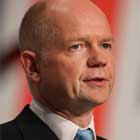 Index joins a group of international rights groups in calling on UK Foreign Minister William Hague and US Secretary of State Hillary Clinton to push for the prisoners’ release
Index joins a group of international rights groups in calling on UK Foreign Minister William Hague and US Secretary of State Hillary Clinton to push for the prisoners’ release
Since March, Emirati authorities have arrested over 50 activists and human rights defenders in a widespread crackdown on dissent.
Dear Foreign Secretary,
We are writing to draw your attention to some disturbing human rights developments in the United Arab Emirates, where the authorities have launched a campaign of arrest, arbitrary detention and deportation to repress and intimidate peaceful political activists.
Since late March, the authorities there have arrested at least 50 Emirati civil society activists and human rights defenders. In recent weeks there has been a marked escalation in the crackdown on those advocating political reform in the UAE, with two prominent human rights lawyers, Mohammed al-Roken and Mohammed al-Mansoori, amongst those detained in a spate of arrests and detentions.
Although none of those arrested have been formally charged with any offence, there are strong indications that the detentions are being linked to issues of national security. A July 15 statement by the UAE’s official news agency said Attorney General Salem Sa’eed Kubaish had ordered the arrest and investigation of “a group of people for establishing and managing an organisation with the aim of committing crimes that harm state security”. The statement also accused this group of having connections with “foreign organisations and outside agendas” and promised to “expose the dimensions of the conspiracy”.
Al-Roken is a prominent human rights lawyer in the Emirates, and has provided legal assistance to al-Islah members detained without charge since March, including a group that authorities stripped of their citizenship. In 2011 he served as co-defence counsel for two of the five activists known as the “UAE 5 ,” who were imprisoned for seven months and tried in 2011 after allegedly posting statements on an internet forum critical of UAE government policy and leaders.
Al-Mansoori is the deputy chairman of al-Islah and a former president of the Jurists’ Association. The UAE authorities dismissed him from his position as a legal advisor to the government of Ras Al Khaimah in January 2010 after he gave a television interview in which he criticised restrictions on freedom of speech in the country. They have barred him from travelling since October 2007 and have refused to renew his passport since March 2008.
On 24 July the Abu Dhabi Court of First Instance sentenced a former judge and University of Sharjah law professor, Dr Ahmed Yousef al-Zaabi, to 12 months’ imprisonment for fraud and assuming another person’s identity. Al-Zaabi’s conviction was based on the fact that his passport still registered his profession as “judge” after his public support for political reform in the UAE had resulted in him being forced into retirement. The authorities’ targeting of lawyers has discouraged members of the Emirati legal profession from offering their services, thereby denying the detained men legal assistance.
On 16 June, the UAE deported Ahmed Abd al-Khaleq, an advocate for the rights of stateless residents known as Bidun. He had been held in detention without charge or explanation since 22 May and was informed that he would be indefinitely detained if he did not agree to leave the UAE. Abd al-Khaleq is one of the UAE 5. UAE authorities charged the UAE 5 in early June 2011 under articles 176 and 8 of the UAE Penal Code, which criminalise “public insults” of the country’s top officials. They were detained throughout a seven-month pre-trial and trial process. The Federal Supreme Court convicted them on 27 November and sentenced them to between two and three years in prison. Shortly afterward, Shaikh Khalifa bin Zayed Al Nahyan, the UAE president, commuted the sentences and they were released. However, the events of recent days have again revealed the lengths to which the UAE authorities are prepared to go to curb dissent.
In January of this year, you wrote that freedom was “still flowering” in the Arab Spring and described how protection against arbitrary punishment and freedom of expression were taking hold in the region. This is manifestly not the case in the UAE, where freedom of speech is being aggressively repressed by intimidation, arbitrary detention and deportation.
We urge you and the UK government to raise these issues at the highest levels with the UAE authorities, and to criticise publicly the repression of free speech and free association, the harassment of members of the legal profession, and to call for the immediate release of the detained activists.
Yours sincerely,
Rachid Mesli, Director, Legal Department, Alkarama Foundation
Mary Lawlor, Executive Director, Front Line
Khalid Ibrahim, Acting Director, Gulf Centre for Human Rights
David Mepham, Advocacy Director, Human Rights Watch
Kirsty Hughes, Chief Executive, Index on Censorship





